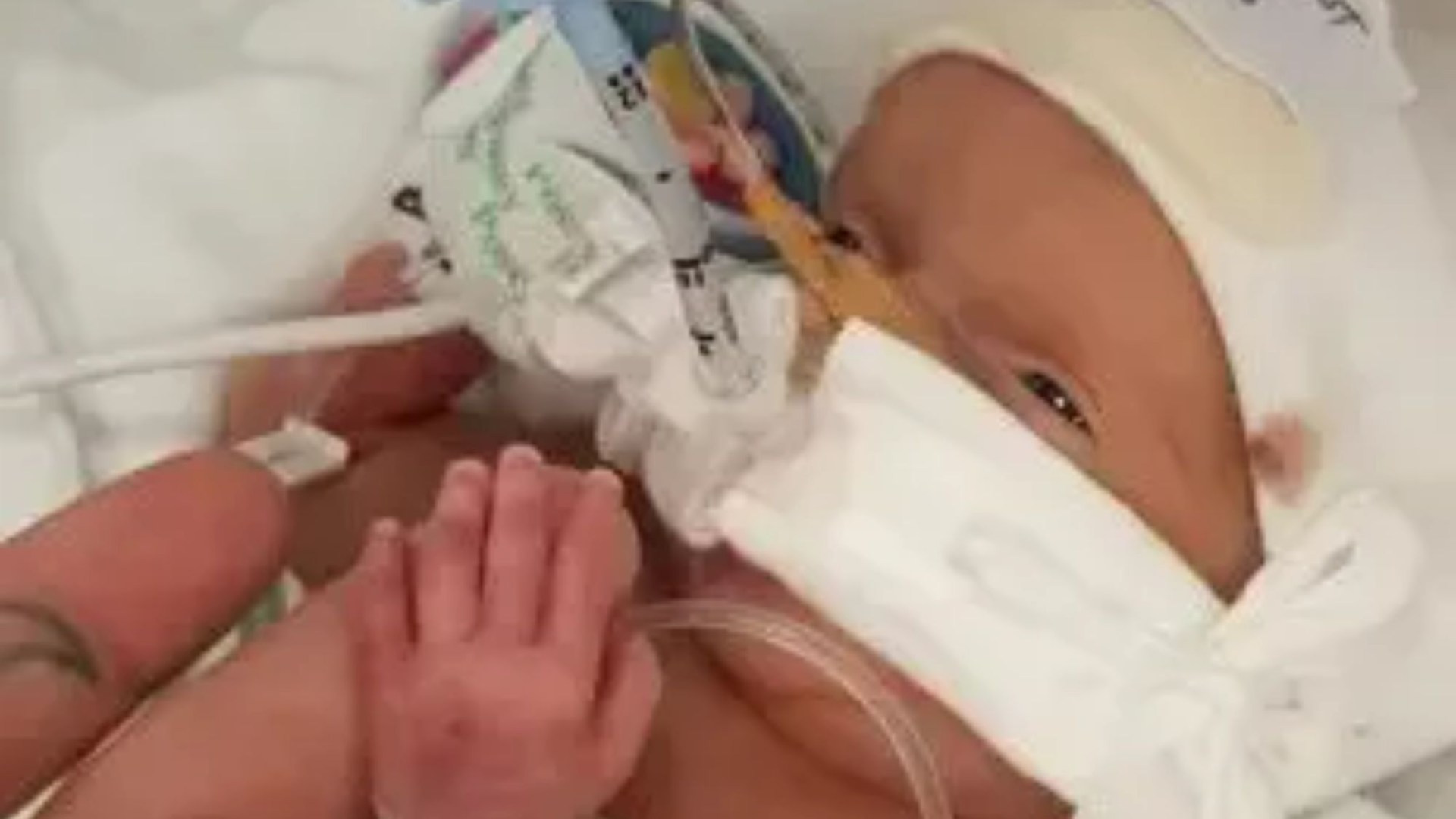TWO babies born prematurely died within just weeks of one another after hospital staff administered the wrong medication, an inquest jury has heard.
Little Elena Ali and Sunny Parker-Propst were both given sodium nitrite instead of sodium bicarbonate while being looked after at Chelsea and Westminster Hospital in 2020.
2

2
On Monday the jury returned verdicts of unlawful killing contributed to by neglect for baby Sunny, and accidental death contributed to by neglect for baby Elena.
Lesley Watts, of Chelsea and Westminster Hospital NHS Foundation Trust, said: “We apologise unreservedly for the failings in care provided to Elena and Sunny.”
She added: “We took immediate action to put measures in place to prevent such tragic incidents from happening again.”
Neither the pharmacist in charge of the drugs administered to the babies nor the nurse looking after them had checked the see if the medicine was correct, the inquest heard.
Read more on premature babies
Elena was born prematurely on April 16, 2020, and her condition was classed as moderate, so she was stabilised in the delivery suite.
Two days later, her blood gas was taken during routine monitoring which showed she had too much acid in her blood, known as metabolic acidosis.
The condition can be life-threatening if not treated properly.
She had been prescribed a sodium bicarbonate infusion, which can be used to balance the acids in the blood.
But instead, the baby was accidentally given sodium nitrite, causing her to die later that day.
Sunny was born prematurely two weeks later, on April 30, and was transferred to the neonatal intensive care unit (NICU) for continuing care.
Like Elena, he was prescribed a sodium bicarbonate infusion after tests showed he was suffering from metabolic acidosis.
However, he was given sodium nitrite in error after it was wrongly stocked in the NICU and selected and administered by the nursing staff.
He died on May 9.
DIDN’T DO PROPER CHECKS
The coroner said the hospital’s chief pharmacist admitted there had been a “complete and total” failure in checks within the pharmacy.
This led to a box of sodium nitrite being issued instead of sodium bicarbonate.
Internal investigations within the pharmacy failed to identify who had issued the wrong drug, the inquest was told.
The unit’s neonatal nurse coordinator told the inquest she knew about a policy to check vials by picking them up and looking at them at eye level – but that she did not do this.
She accepted these are fundamental steps to take and that if she had taken them, she would have realised it was sodium nitrate.
‘I MISS HIM EVERYDAY’
Selina Mazumder, mother of Elena, said: “There’s a lot of mixed emotions, it’s taken four long years to get to this point.
“We believe the conclusions the jury have come to today mirror our own feelings and what we’ve known all along.
“Which is the catalogue of failings that were really serious and negligent and that both Elena and Sunny lost their lives because of these failings and that they should be here today. ”
Kerstin Propst, mother of Sunny, said: “I am glad that this inquest process has finally enabled us to gain some answers about what happened to our beloved Sunny, although hearing about the multiple failures and missed opportunities that led to his tragic death were very hard to hear.
“Losing Sunny so needlessly completely shattered the whole family, not just me.
“He will always mean the world to me, and I am so proud of him. I miss him every day.”
‘SHOCKING’
The families were represented at the inquest by solicitor Frankie Rhodes, of law firm Leigh Day.
Ms Rhodes said the verdict would give families “some closure” but highlighted a “catalogue of errors and basic failings from the nurses involved in both babies’ care”.
“It is shocking that these premature babies, some of the most vulnerable in society, were put at risk, and both Elena and Sunny needlessly lost their lives due to failures to do simple checks which are a fundamental part of a neonatal nurses’ job,” she said.
The ten-day inquest was held at Westminster Coroners’ Court by the senior coroner for Inner West London, Prof Fiona Wilcox.
What is metabolic acidosis?

Metabolic acidosis is a condition that occurs when there is too much acid in the body’s fluids
This can happen when the body produces too much acid, or when the kidneys are unable to remove enough acid.
Some causes of metabolic acidosis include:
- Untreated diabetes: Also known as diabetic ketoacidosis (DKA), this occurs when ketone bodies build up during uncontrolled diabetes
- Kidney conditions: People with chronic kidney disease (CKD) are at a higher risk of developing metabolic acidosis, especially in more advanced stages
- Loss of bicarbonate: This can be caused by severe diarrhoea or laxative abuse
In newborn babies, the condition can be a sign of another underlying health issues such as hypoxaemia, hypotension or poor tissue perfusion, anaemia, infection or sepsis, or strenuous activity (respiratory distress).
Symptoms of metabolic acidosis include:
Fast breathing, fast heartbeat, headache, confusion, weakness, fatigue, loss of appetite, nausea, vomiting, and fruity-smelling breath.
Blood and urine tests can help diagnose metabolic acidosis, and treatments may include sodium bicarbonate, IV fluids, and insulin
Treatment:
Metabolic acidosis treatments depend on the cause of the acid-base imbalance. Some common treatments include:
- Nutrition: Eat more fruits, vegetables, and plant-based proteins, and less meat, egg yolks, hard cheeses, and grains
- MedicationsTake sodium bicarbonate, sodium citrate, potassium citrate, or other medications as prescribed by your healthcare provider
- FluidsReceive IV fluids or drink lots of water and non-alcoholic fluids
- Other treatments: Depending on the type of metabolic acidosis, treatments may also include insulin, oxygen, antibiotics, or detoxification
Source: Cleveland Clinic + Sydney Local Health District




